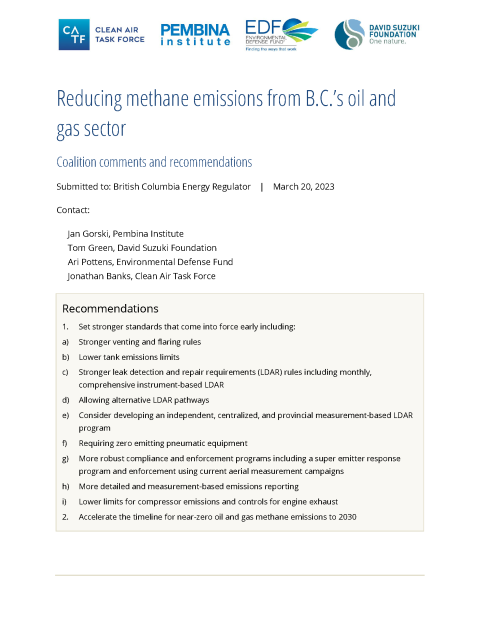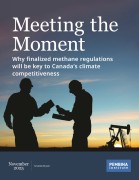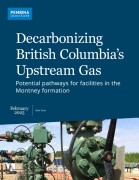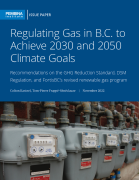To meet B.C.’s 2030 oil and gas sector target, achieving deep reductions from low-cost methane mitigation is needed. Forthcoming regulations for the oil and gas sector in B.C. must rapidly accelerate current efforts to reduce emissions and mitigate near-term climate warming. The Pembina Institute, in collaboration with coalition members David Suzuki Foundation, Environmental Defense Fund and Clean Air Task Force, has submitted comments and recommendations on the development of new policy to meet and exceed B.C.’s commitment to reduce methane emissions.
The coalition recommends:
- Set stronger standards that come into force early including:
- Stronger venting and flaring rules
- Lower tank emissions limits
- Stronger leak detection and repair requirements (LDAR) rules including monthly, comprehensive instrument-based LDAR
- Allowing alternative LDAR pathways
- Consider developing an independent, centralized, and provincial measurement-based LDAR program
- Requiring zero emitting pneumatic equipment
- More robust compliance and enforcement programs including a super emitter response program and enforcement using current aerial measurement campaigns
- More detailed and measurement-based emissions reporting
- Lower limits for compressor emissions and controls for engine exhaust
- Accelerate the timeline for near-zero oil and gas methane emissions to 2030







